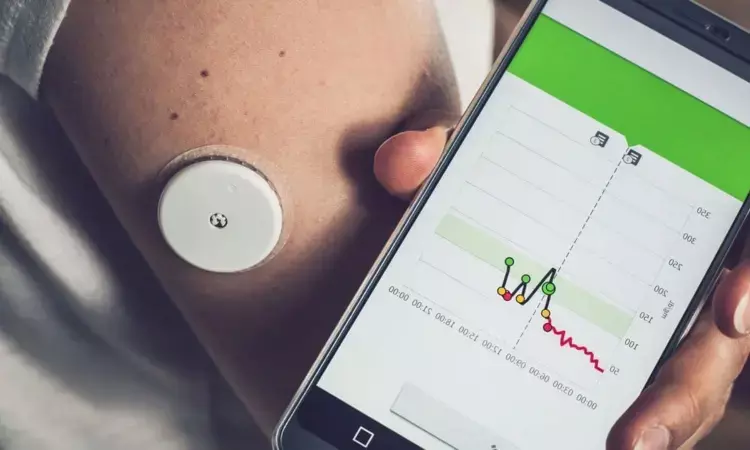- Home
- Medical news & Guidelines
- Anesthesiology
- Cardiology and CTVS
- Critical Care
- Dentistry
- Dermatology
- Diabetes and Endocrinology
- ENT
- Gastroenterology
- Medicine
- Nephrology
- Neurology
- Obstretics-Gynaecology
- Oncology
- Ophthalmology
- Orthopaedics
- Pediatrics-Neonatology
- Psychiatry
- Pulmonology
- Radiology
- Surgery
- Urology
- Laboratory Medicine
- Diet
- Nursing
- Paramedical
- Physiotherapy
- Health news
- Fact Check
- Bone Health Fact Check
- Brain Health Fact Check
- Cancer Related Fact Check
- Child Care Fact Check
- Dental and oral health fact check
- Diabetes and metabolic health fact check
- Diet and Nutrition Fact Check
- Eye and ENT Care Fact Check
- Fitness fact check
- Gut health fact check
- Heart health fact check
- Kidney health fact check
- Medical education fact check
- Men's health fact check
- Respiratory fact check
- Skin and hair care fact check
- Vaccine and Immunization fact check
- Women's health fact check
- AYUSH
- State News
- Andaman and Nicobar Islands
- Andhra Pradesh
- Arunachal Pradesh
- Assam
- Bihar
- Chandigarh
- Chattisgarh
- Dadra and Nagar Haveli
- Daman and Diu
- Delhi
- Goa
- Gujarat
- Haryana
- Himachal Pradesh
- Jammu & Kashmir
- Jharkhand
- Karnataka
- Kerala
- Ladakh
- Lakshadweep
- Madhya Pradesh
- Maharashtra
- Manipur
- Meghalaya
- Mizoram
- Nagaland
- Odisha
- Puducherry
- Punjab
- Rajasthan
- Sikkim
- Tamil Nadu
- Telangana
- Tripura
- Uttar Pradesh
- Uttrakhand
- West Bengal
- Medical Education
- Industry
CGM use helps improve blood sugar control in pregnant women with normal OGTT: Study

Italy: Gestational diabetes diagnosis based on the current criteria of WHO is not sufficient to identify all pregnant women having abnormal glycemic excursions, despite this it remains the chosen tool. Now, a recent study in the Journal of Diabetes Research has found the use of CGM in pregnancy to be helpful in detecting blood sugar fluctuation in women with normal oral glucose tolerance test (OGTT).
Continuous glucose monitoring (CGM) could be a good tool to improve glycemic control in gestational diabetes mellitus (GDM). However, not much data is available on its utilization as a diagnostic tool to find potential alterations of glycemia in pregnant women with normal OGTT. Dario Pitocco, Fondazione Policlinico Universitario Agostino Gemelli IRCCS, Rome, Italy, and colleagues, therefore, aimed to analyze the glycemic pattern in normal and gestational diabetes mellitus women by CGM in order to detect potential differences between the two groups and glycemic alterations despite a normal OGTT in a preliminary prospective real-life observational study.
After screening for GDM, the subjects were connected to a CGM system for seven consecutive days. The researchers then analyzed the areas under the curve of the first 60 minutes after each meal and 60 minutes before breakfast.
Key findings of the study include:
- Women with normal OGTT that during CGM showed impaired glycemic values (more than 95 fasting or more than 140 one hour after meals or more than 120 two hours after meals) performed one week of self-monitoring of blood glucose (SMBG).
- After OGTT, 53 women considered normal and 46 affected by GDM were included. CGM parameters did not show any differences between the two groups with impaired glycemic excursions found in both groups.
- After CGM period, 33 women with normal OGTT showed abnormal glycemic patterns.
- These 33 women then performed one week of SMBG.
- After evaluation of one week of SMBG, 21 required diet therapy and 12 required insulin treatment and were followed until the delivery.
- An increase in gestational weight gain was observed in normal women with normal OGTT but this was not significant. No significant data were found regarding neonatal outcomes in the two groups of women.
"In the future, a holistic approach to mild GDM, through the use of CGM, probably as an integral part of a metabolic gestational score involving maternal and fetal anthropometric parameters could really distinguish which pregnant women should be followed by the caregivers in terms of more intensive management, to counteract the short- and long-term maternal and fetal complications," wrote the authors.
Reference:
The study titled, "Continuous Glucose Monitoring in Women with Normal OGTT in Pregnancy," is published in the Journal of Diabetes Research.
DOI: https://www.hindawi.com/journals/jdr/2021/9987646/#conclusion
Dr Kamal Kant Kohli-MBBS, DTCD- a chest specialist with more than 30 years of practice and a flair for writing clinical articles, Dr Kamal Kant Kohli joined Medical Dialogues as a Chief Editor of Medical News. Besides writing articles, as an editor, he proofreads and verifies all the medical content published on Medical Dialogues including those coming from journals, studies,medical conferences,guidelines etc. Email: drkohli@medicaldialogues.in. Contact no. 011-43720751


